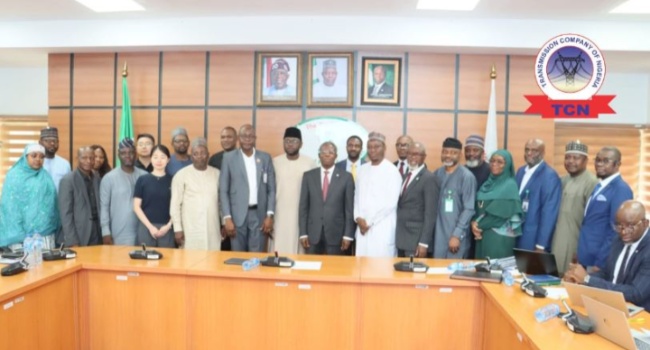The Contributory Pension Scheme (CPS), introduced in 2004, was a response to the failures and unsustainability of the old defined benefit scheme (DBS). Under the DBS, retirees often faced severe delays in receiving their pensions due to a plethora of inefficiencies. The system was plagued by corruption, and other challenges, leaving many retirees destitute and dependent on family members for survival. In contrast, the CPS offers a more transparent and predictable system, where workers’ contributions are managed by pension fund administrators (PFAs) under the regulation and supervision of the National Pension Commission (PenCom).
The CPS ensures that each worker’s pension is funded by both the employee and the employer, creating a pool of funds that is invested to generate returns. These returns help secure the future of retirees, ensuring a stable income after retirement. Unlike the DBS, where pension payments were subject to government budgetary allocations and uncertainties, the CPS guarantees that workers’ pension savings are readily available for payment of retirement and terminal benefits.
Despite the significant successes recorded in the implementation of the CPS in Nigeria, there are concerns about low pensions, particularly among public sector retirees, who often have lower pay compared to those in the private sector. The issue of low pensions under the CPS can be attributed to several factors:
- LOW CONTRIBUTION RATES: The amount of pension paid to a retiree is directly related to the contributions made during the retiree’s working years. The Pension Reform Act 2014 (PRA 2014) mandates a minimum of 18 percent of the employee’s monthly emolument to be contributed to the retirement savings account (RSA) by the employer (10 percent) and the employee (8 percent). However, this is only a minimum. The contribution rates can be increased by both parties, or the employer may elect to bear the full responsibility of the prescribed or higher contribution rate, which would result in higher pensions for employees upon retirement.
- SHORT CONTRIBUTION PERIOD: A shorter period of participation in the CPS leads to limited accumulated pension savings. This affected early retirees under the CPS, especially employees who retired a few years after the commencement of the exit from 1 July 2007. As the CPS gathers more momentum having been in existence for 20 years now, this issue will abate. However, some retirees have had a short contribution period before leaving active service, resulting in insufficient accumulation for higher pensions. This was a transitional challenge, which would no longer be a significant issue as the scheme matures.
- IMPACT OF LUMP SUM WITHDRAWALS: Retirees are allowed to withdraw a portion of their pension savings as a lump sum upon retirement. However, pension and lump sum withdrawals have an inverse relationship: the higher the lump sum, the lower the pension, and vice versa. The key principle of pension management is balancing immediate lump sums with the long-term sustainability of monthly payments. It should be understood that the primary objective of the pension reform in Nigeria is to ensure timely payment of pensions to protect retirees from destitution in their golden years.
- RSA HOLDER’S DECISIONS: The CPS offers flexibility, allowing RSA holders to make decisions that directly influence their pension savings. For instance, younger RSA holders with many years ahead in their careers may benefit from choosing an aggressive investment fund within the multi-fund structure, potentially leading to higher pension outcomes. Another crucial decision is the selection of a PFA. RSA holders can also switch PFAs for better service quality and improved returns. However, it is important to note that withdrawals from the RSA before retirement, such as in cases of temporary job loss or as equity contributions for residential mortgages, can reduce the size of the monthly pension at retirement. An RSA holder that does not make early withdrawals is on a more prudent strategy to ensuring higher pensions in the future.
THE PATH TO INCREASED PENSIONS
Advertisement
To address factors contributing to low pensions, the PRA 2014 allows employers to establish additional benefits schemes (ABS), providing enhanced retirement benefits, including gratuity payments, to their employees. Contrary to misconceptions, the CPS has not abolished the payment of gratuity to employees. Indeed, many organisations have instituted ABS from which gratuities and other retirement benefits are paid to retirees in addition to the RSA balances. This flexibility enables employers to offer more benefits beyond the mandatory provisions, depending on employment terms, affordability, and collective bargaining.
It is crucial to understand that profits generated from pension fund investments continue to seamlessly reflect in retirees’ RSA balances, further boosting their pensions. Consequently, in 2017, PenCom introduced the periodic enhancement of pensions for CPS retirees because the returns generated by the PFAs on the RSAs of most retirees were sufficient to enhance their monthly pensions. Over the years, many RSAs have seen significant growth due to high returns from PFAs, despite ongoing monthly pension payouts.
As outlined above, various options are available to employers and employees to improve pension adequacy, particularly for public service retirees who are disproportionately affected by lower pay. Offering additional retirement benefits can attract and retain talent, boost employee morale and loyalty, and enhance an organisation’s reputation.
Advertisement
Based on information from the National Pension Commission (PenCom).
Add a comment












